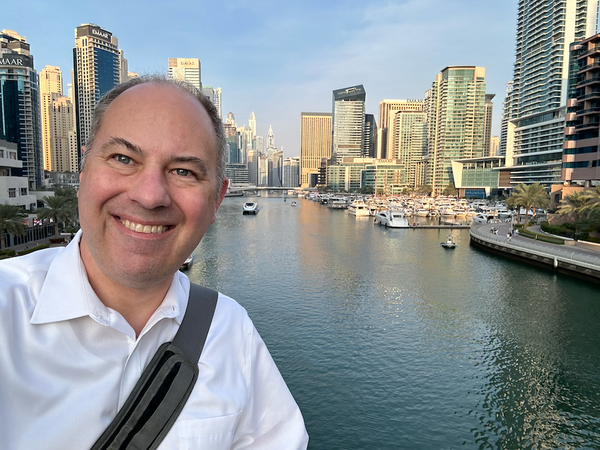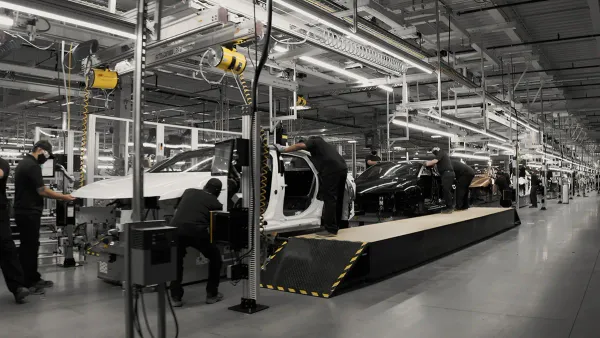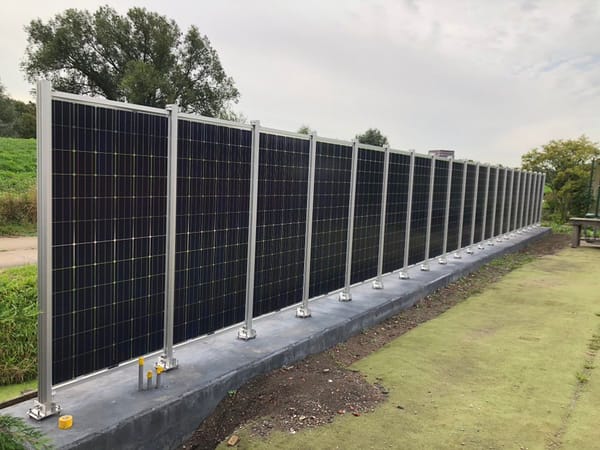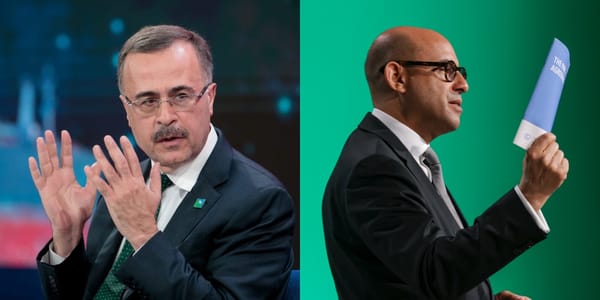How Global Stocktake results and carbon capture will play into negotiations
Third in a series of five expected COP28 issues
Good Afternoon!
With about a month to go before COP28 in Dubai, a slew of interest groups are launching briefings for reporters and policymakers on what to expect. Probably Covid’s best outcome is that you can attend many of these briefings virtually and better yet, they publish their slide decks so you don’t have to sit through the whole thing.
In much the same vein, you don’t have to read through the whole newsletter today to get the gist. In fact, you can just skip to “What’s the politics?” if you’re in a hurry. I’m working on slimming things down to make reports faster and more direct.
And, of course, as I prepare to head to Dubai, I’d like to make one more pitch: Toss in $30 and every day (even weekends) you’ll receive daily reports from me in Dubai from November 30 to December 12. I’ll include pictures, reporting on what’s happening with negotiations, as well as my observations on the activity and people of the U.N.’s biggest climate meeting.
Thanks for reading and if you can support the Kickstarter, you’re the best!
-Mike
Today continues my third deep dive on major expected issues for the climate negotiations. If you’re just catching up, here’s past links and future plans:
Oct. 19 – The four major issues shaping up COP28, plus one more
Oct. 20 – Why we’re talking about abatement instead of fossil fuel phase out
Oct. 24 – Developing country finances are now a top climate negotiating point
Today – The Global Stocktake results – and the role of carbon capture
Oct. 31 – Green energy financing, where will it come from?
Nov. 2 – Concerns surrounding the COP28 president
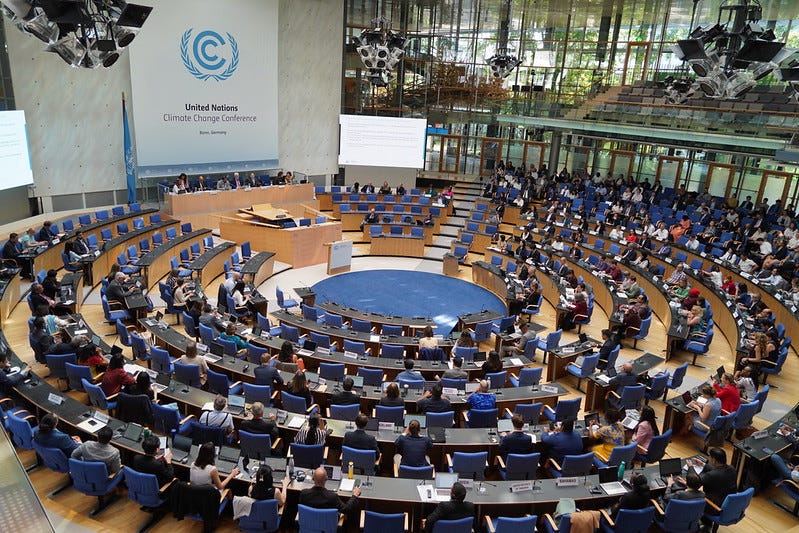
The basic precept of diplomatic negotiations is that treaties are ironclad. If you’ve signed and ratified something – no matter what your current political state may be – you have to adhere to the agreement.
This becomes especially important for multilateral agreements like the 2015 Paris Agreement on climate, because their strength is that every signatory has to bear the burden of some aspect they don’t like.
The Paris Agreement text calls for signatories to hold global warming “to well below 2°C above pre-industrial levels and [to pursue] efforts to limit the temperature increase to 1.5°C above pre-industrial levels.” That language calls for every signatory, including oil states, to cut emissions in order to honor the Agreement and for future negotiations to start with that base level – keep warming well below 2°C, and to try for 1.5°C.
What’s happening?
Although there is no enforcement mechanism – nobody can be fined or penalized for not adhering to the Paris Agreement, there is accountability through the Global Stocktake, a once-every-five-years review of all of the entire world’s performance (not individual countries) towards the 2°C and 1.5°C goals. This year’s COP28 in Dubai will bring the final results of the first Global Stocktake report, and although the final results aren’t out, another report by the Intergovernmental Panel on Climate Change released last March, makes it clear: The world’s current energy and climate policies are off track and headed towards 3°C.
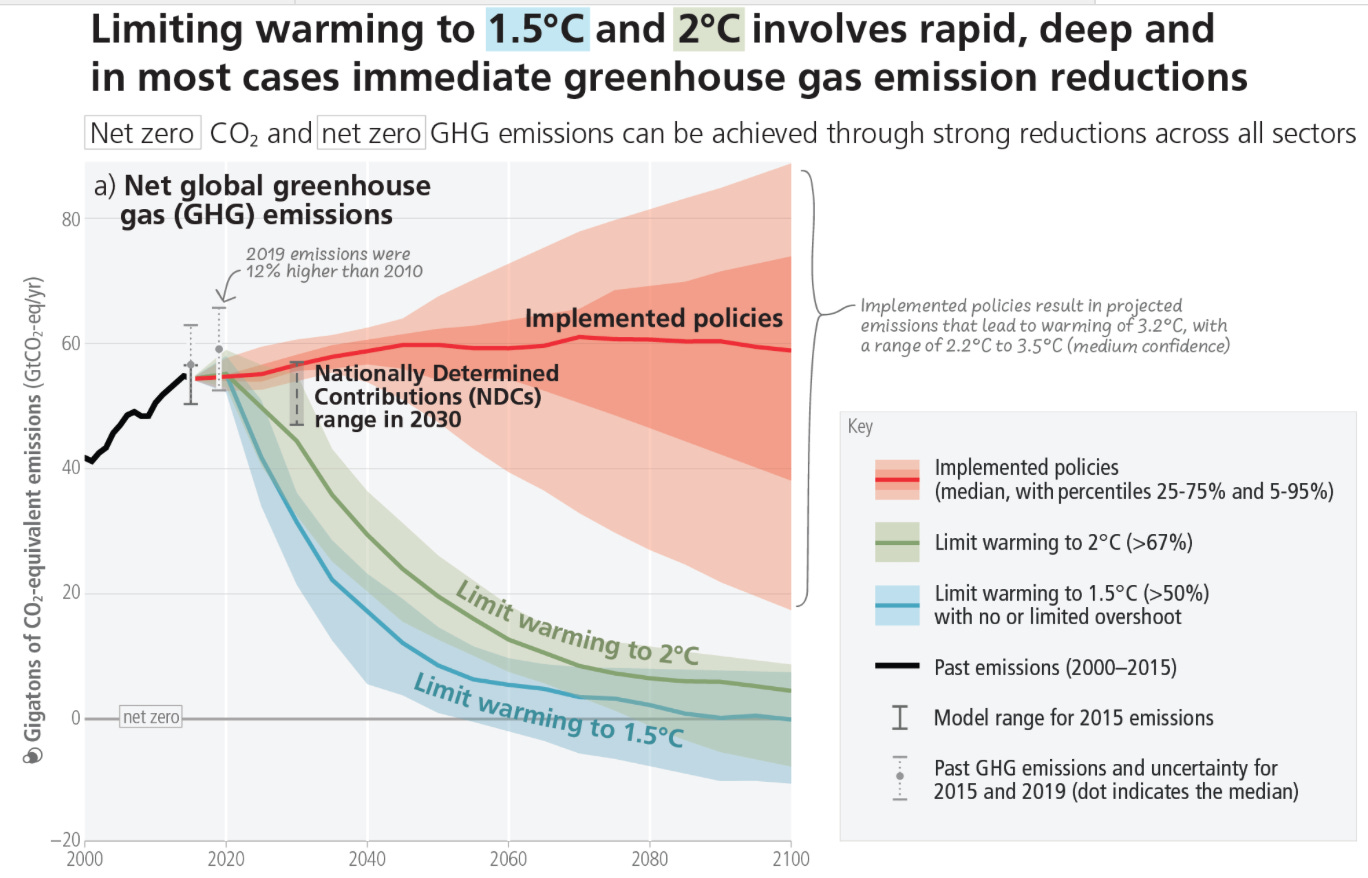
While the U.N. doesn’t track specific countries’ climate policy outcomes, you can get a look at how individual countries are performing at Climate Action Tracker, which demonstrates that no country (not even in Scandinavia!) has climate goals sufficient to reach 1.5°C. Following the Stocktake, each country is supposed to submit a new five-year plan for climate, their Nationally Determined Contribution, to codify their efforts to reach net zero.
The final results of the Stocktake are likely to make a media kerfuffle in Dubai at COP28, but the main effect will be on negotiations, by demonstrating that existing agreements and NDCs aren’t sufficient. Negotiators will be under new pressure to show some kind of progress, or else risk exposing the climate negotiation process as unable to actually address climate change.
What’s the politics?
Among activists, there is a growing concern that COP28 in Dubai, UAE, is already on path to being a “failed COP”, primarily because the president of the meeting, Sheik Al Jaber, also happens to be the head of the UAE national oil company. Typically, the COP president plays an important role as an arbitrator who seeks to find solutions in tight negotiating sessions. But since the main arbitrator is from a company that does not benefit from fighting climate change, few negotiators trust the outcome will be positive.
The Stocktake results will only shine a spotlight on that problem since countries aren’t modifying their emissions outputs enough to get to net zero fast enough to stay under either 1.5°C or 2°C. The solution, largely championed by oil producing countries like UAE and the United States (now the world’s largest oil producer) is to ramp up carbon capture and sequestration, basically sucking CO2 out of the air and then pumping it down old oil wells.
This is the idea of “abatement”, where CO2 produced by fossil fuels could be abated by sequestration. But, a series of recent reports have shown that existing carbon capture projects aren’t working and pipeline projects to inject captured carbon can’t get permits. If it seems like abatement isn’t technically working, it will be curious to see how negotiators who have made it their centerpiece (which includes the United States) will be able to credibly push the concept in Dubai.
What’s the money angle?
The Global Stocktake will likely show that the world’s “go slow” angle to solving climate change isn’t working. And, as Al Gore claims in this interview this week, the “deck is stacked against” COP28. “And we need to see the politicians stop playing buddy-buddy with the heads of the fossil fuel companies who are continuing to drive this crisis in the wrong direction,” he told the Financial Times. (click through to watch the video, where Gore gets more riled up than since his 2000 presidential campaign)
The potential capture of COP28 by oil companies is turning out to be one of the main themes of the meeting. For instance, this headline: OPEC Will Have a Pavilion at COP Climate Summit for First Time portends a great deal. Although the U.N. Secretary-General has been advocating to set an end date for fossil fuel use, it seems that oil interests are countering his push by fully embracing this meeting to smother it into submission.
What’s the potential outcome?
The Stocktake results will likely shame negotiators, but not much more than that. Unless some leading group of countries comes to the table with surprise plans to drastically reduce emissions (it’s always possible China or India will do so), we should expect little change in emissions plans as oil interests are doing everything they can to stop those changes. Meanwhile, we could expect more focus on other areas like increasing developing country finances, or, as I’ll discuss next week, working out plans for increased green energy development.
Other Things Happened
- The U.S. House’s new Speaker is a climate skeptic.
- Otis, the storm that hit Acapulco this week, increased wind speeds by 115 miles per hour within a day. It fits into no previously existing storm forecast model.
- China, the world’s largest emitter, says it will announce a plan to slash methane emissions before COP28.
- EV ownership is deeply tied to voting behavior in the US, it’s reached a tipping point only in states that voted for Biden.
You read through the whole thing! Did you know Peter Gabriel is releasing his first album in over 20 years?


